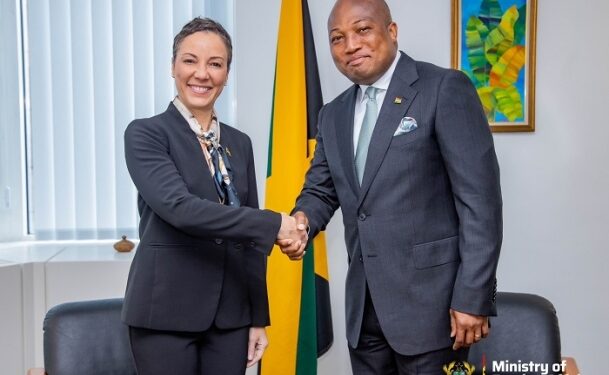Ghana and Jamaica have signed a groundbreaking bilateral agreement to deploy Ghanaian-trained nurses and teachers to the Caribbean nation in a move that promises mutual benefits for both countries while addressing graduate unemployment in Ghana.
The Minister of Foreign Affairs and Regional Integration, Samuel Okudzeto Ablakwa, announced the initiative over the weekend following a high-level diplomatic meeting with Jamaica’s Minister of Foreign Affairs and Foreign Trade, Kamina Johnson Smith, on the sidelines of the Organisation of African, Caribbean, and Pacific States (OACPS) Summit in Brussels, Belgium.
Under the agreement, Jamaica will begin receiving Ghanaian professionals to fill critical gaps in its healthcare and education sectors, absorbing unemployed graduates who have completed national service but remain jobless in Ghana.
“Jamaica is ready to receive nurses and teachers from Ghana under a special bilateral partnership,” Mr Ablakwa said, adding that the deal will offer not only employment but also valuable international exposure and better conditions of service for the beneficiaries.
Strategic Response to Unemployment
The agreement marks a significant step in tackling Ghana’s growing graduate unemployment, particularly in sectors historically plagued by labour disputes, delayed postings, and underemployment. Trained nurses and teachers in Ghana have frequently voiced frustration over job shortages, unpaid salaries, and limited professional opportunities.
Read Also: Mahama outlines 8-point economic recovery plan to restore growth and market stability
The deployment program is seen as a strategic win-win—providing skilled Ghanaian professionals with opportunities abroad while supporting Jamaica’s public service delivery.
Deepening Bilateral Relations
Beyond labour mobility, the foreign ministers reaffirmed their countries’ commitment to strengthen cooperation across multiple sectors, including trade, agribusiness, education, tourism, cultural exchange, and sports development.
Mr Ablakwa noted that these engagements will expand market access for Ghanaian exporters, particularly in agriculture, and enhance people-to-people exchanges between the two nations.
“Our discussions are anchored on the vision of shared growth and historical solidarity,” Mr Ablakwa said. “High-level political consultations will be held to further deepen cooperation across critical sectors of mutual interest.”
A Historical and Cultural Bond
The agreement builds on a longstanding cultural and historical connection between Ghana and Jamaica. Many Jamaicans trace their ancestry to Ghana and other parts of West Africa, a legacy of the transatlantic slave trade.
Ghana continues to be a spiritual and cultural destination for Caribbean nationals, with increasing tourism and diaspora engagements under the “Year of Return” and “Beyond the Return” campaigns.
As both nations explore new avenues for collaboration, the labour mobility agreement is expected to serve as a model for South-South cooperation—leveraging shared heritage to build practical solutions for economic and social advancement.

























